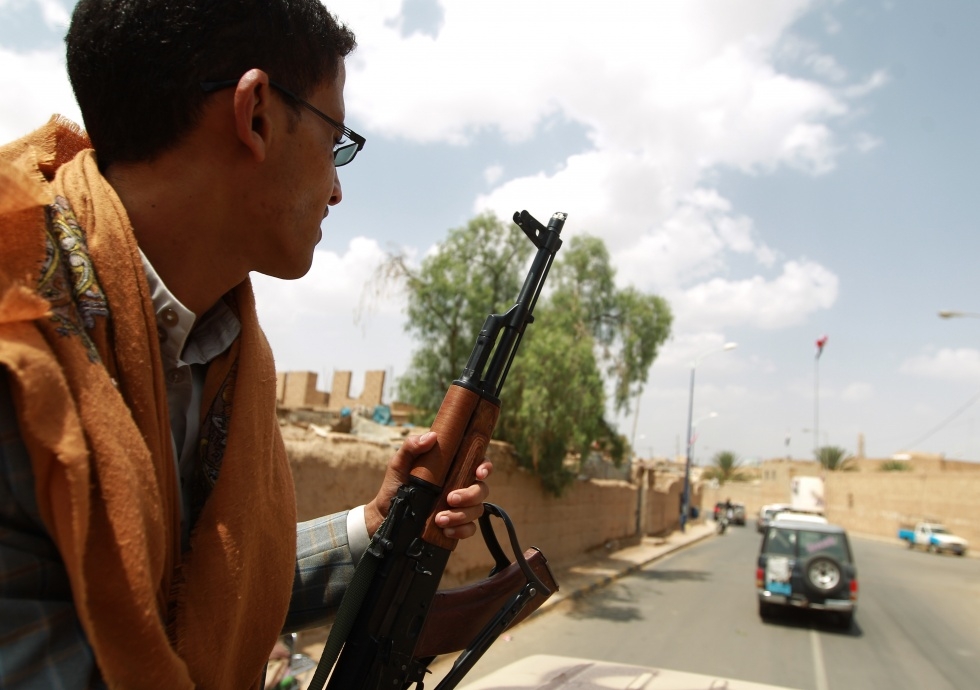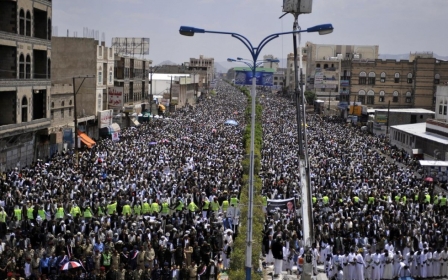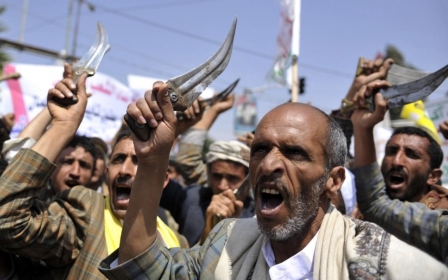Armed Shiite rebels push into Yemen's capital

After almost a month of protests against the government Houthi militants have forced their way into a suburb of Yemen’s capital Sana’a, where they are besieging a religious university and fighting Sunni militias, security officials said, raising fears of a wider conflict.
The capture of Iman University, a few kilometres from president Hadi’s residence, marks a dramatic victory for the Houthis, a Shiite group based in the northern province of Saada who are demanding government changes.
Explosions and gunfire sounded on Wednesday as Houthi militants battled it out with fighters loyal to general Ali Mohsen, a rival of ousted President Ali Abdullah Saleh. Residents in the east of the capital said the two sides were using anti-aircraft missiles. Others fled their homes.
Meanwhile negotiations are ongoing between the rebels and Yemen’s government, mediated by the UN special envoy to Yemen, Jamal Benomar.
In a statement released after a new round of talks on Thursday, Houthi spokesperson Mohammed Abdel Salaam stressed that the Houthis and the Yemeni army reached a final ceasefire in al-Jawf province just north-east of the capital, where rebels had been engaging in bloody battles with Yemeni soldiers and local tribesmen affiliated to government forces.
A government official who did not wish to be named told Middle East Eye that the Houthis were working on two fronts.
“There is a diplomatic political front to maximize gains via dialogue and a military-style ground campaign to weaken their adversaries mainly the Islah party,” the official said. The ultimate goal is to be the next kings maker in Yemen.”
Al-Imam, a university on the Western side of the capital, hosts nearly 4000 students from 40 different countries. Most specialise in religious studies. Western authorities have long been suspicious of the school’s activities labelling it a recruiting center for Islamist extremists.
The university was founded in 1993 by Sheikh Abdul Majid Al-Zindani who the UN says has ties to al-qaeda.
Middle East Eye propose une couverture et une analyse indépendantes et incomparables du Moyen-Orient, de l’Afrique du Nord et d’autres régions du monde. Pour en savoir plus sur la reprise de ce contenu et les frais qui s’appliquent, veuillez remplir ce formulaire [en anglais]. Pour en savoir plus sur MEE, cliquez ici [en anglais].



